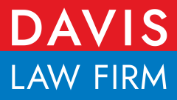One of the largest sums of money any under-graduate or post-graduate has to consider is that of their ongoing student loan payments. Whether the payments include a fixed or variable interest rate and/or a monthly or annual fee, the payments can get to be quite high. It is often the case that when an individual out of school files for bankruptcy, the question then arises, “Will my student loans get discharged?”.
In the nineteen seventies, discharging student loans became quite popular. This was due to a large number of graduating undergraduate students and/or post-graduate students claiming bankruptcy directly after their education was completed. In riding themselves of their dues prior to making any income, they could completely eliminate their high cost of education. In nineteen hundred and ninety-eight the bankruptcy laws were amended to preserve bankruptcy for those who truly needed the assistance.
In most cases, unfortunately, student loans are not discharged when filing bankruptcy and payments must continue to be made. Although, in some cases of filing Chapter 7 bankruptcy or Chapter 13 bankruptcy there are unique circumstance allowances. It is stated that in “undue hardships’ the debtor may have their student loans discharged if determined by the court system.
This ‘undue hardship’ would have to be a belief by the courts that continuing to pay your student loans would cause financial and undue hardship to not only you, but any dependents you may have. Currently there are three criterion that the courts use to determine if you fit this exemption:
1.) Will you not be able to live at a minimal standard of living due to your continuing to repay your student loans on a regular basis.
2.) Over the period of repayment, will you be able to maintain that minimal standard of living for not only yourself, but also your dependents
3.) Have you been repaying your loan for at least five years, and did you make a true effort to repay your loans before filing for bankruptcy?
In considering these criterion, the courts feel that they can make an educated decision as to whether or not your student loans should be discharged. It is always best to consult with a San Antonio bankruptcy attorney to get more information on your particular case, and what may work best for you and your family‘s needs. In seeking professional assistance, there may be gray areas of bankruptcy law that apply directly to you, including that of ‘undue hardship‘.
Jeff Davis is the Owner of the Davis law firm, and a highly experienced San Antonio bankruptcy attorney. To find out more information about a San Antonio bankruptcy lawyer, please visit www.jeffdavislawfirm.com.
